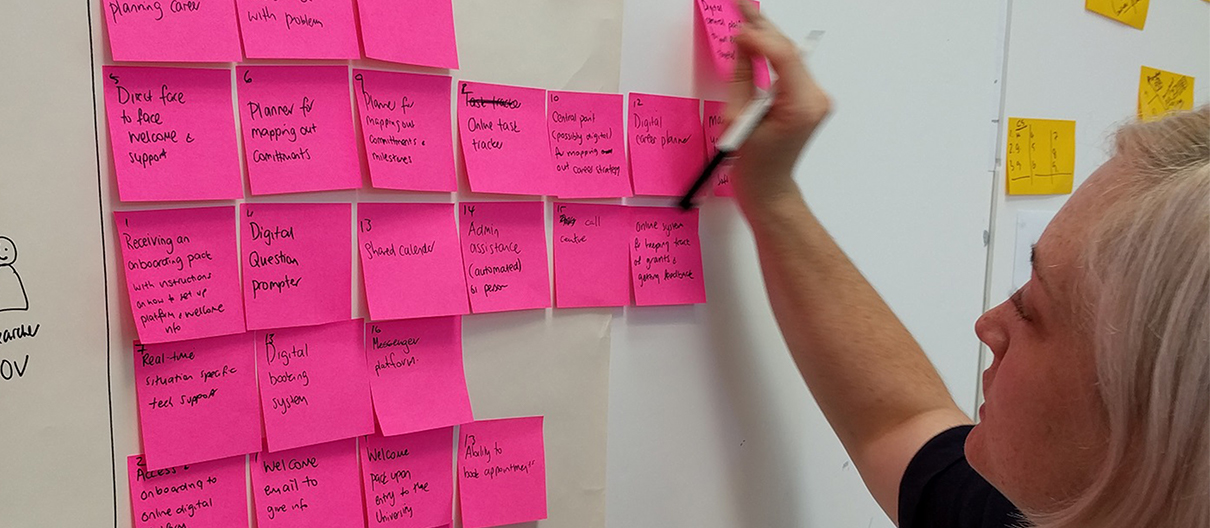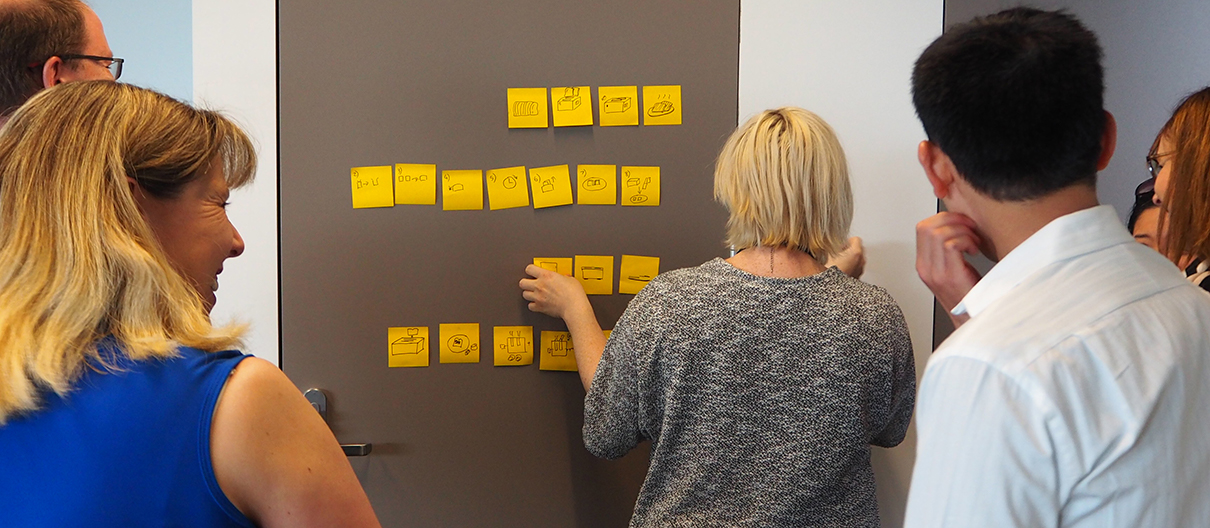Find unarticulated customer needs
When we speak of “understanding your customer” we are talking about discovering the gems that your customer can’t or won’t articulate and the expectations they hold which they are not fully conscious off – that is until you let them down.
We have a process that guarantees you will find meaning and opportunities that you have not uncovered before. It is a process that will give you insight into the “why” of your customer, not the “what”, it is a process that gives meaning to your customer’s behaviour, and helps you identify the opportunities to meet or exceed your customer expectations.
We use only a handful of techniques to help you understand your customer. We don’t need large sample sizes, and in turn can generate insight in a relatively short space of time. Our objective is to understand your customer’s behaviour, their tasks, and their context of use or interaction. We look for patterns of behaviour and aim to understand your customer’s feelings as they interact with you.
It is your customers feelings that ultimately drive them towards you or away from you, so once we can identify key “breakpoints” or misaligned expectations, this is where we can identify key opportunities.
We use ethnographic techniques such as diary studies and contextual inquires to understand the unarticulated needs of your customer. We focus on understanding unarticulated needs to develop a clear point of differentiation and identify strategic innovation opportunities.
We don’t use or believe in focus groups as a means to identify opportunities, we know what customers say is often not what they do, so we prefer to observe them, and from this probe into their behaviour. If we ask them what they want, they will either not tell us, tell us what they think we want to hear, or if they do tell us something new, then they are probably also telling your competitors.
We articulate the insight from this stage through journey maps, behavioural profiles or personas, design principles, guidelines, and by sharing stories and quotes to help you “walk in the shoes” of your customers.
What are the benefits to the business?
- Discover unarticulated needs to identify opportunities and inform your innovation pipeline.
- Build empathy for your customer, helping the business understand them as a “human” rather than just a user, a customer, or a sale.
- Gain clarity into your customers unmet needs and expectations to help you better serve your customer, reduce churn and increase acquisitions.
- Use insight to improve the customer experience and increase advocacy.
What are the outcomes?
- A portfolio of opportunities prioritised based on customer value and differentiation potential.
- Decision-making tools that help the business make objective decisions.
- Story-telling tools that build empathy and increase understanding of the customer’s world.
- Decision making tools – Following the completion of the inquiries or diary studies, we synthesis the data, and surface insights through affinity diagramming. From this insight we are in a position to create decision-making tools and highlight opportunities.
What are the key activities?
Contextual Inquires
An ethnographic research method for understanding your customers behaviour, their context and environment, their key tasks, and the touchpoints they interact with when completing a task. It is based on observation and is exploratory and open-ended.
Diary studies
A longitudinal research method for understanding your customer’s feelings, behaviour, beliefs, attitudes, thoughts and reactions over a period of time. The diary enables us to look for recurring patterns and provides a more reliable platform from which to perform a contextual inquiry.
Affinity diagramming
Affinity diagramming is a method used to find patterns across qualitative data, and define themes or categories that will be used to inform the creation of design principles, key customer insights and needs, and the direction of the final solution.
Case studies
 Customer satisfaction pilot
Customer satisfaction pilot
Research and strategic insights to inform the creation of an ongoing satisfaction measurement program.
 Consumer Directed Care service
Consumer Directed Care service
Research and strategic insights to inform redesign of the home care service delivery model to meet CDC Policy reforms.

